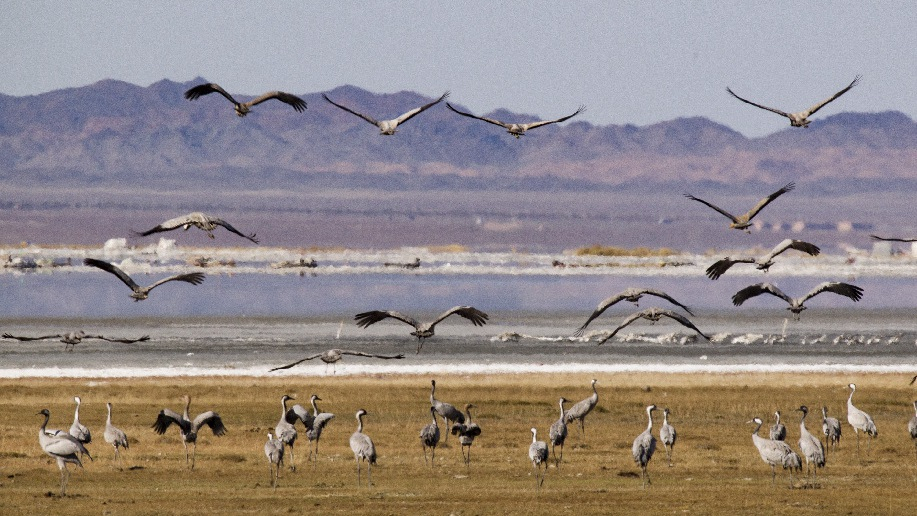

The construction of a highway in northwest China's Xinjiang Uygur Autonomous Region has been postponed to protect migratory birds.
In mid-June, workers found a large number of birds building nests and hatching in the cracks of the rocks laid on the roadbed of a section of Barkol-Hami highway, an important transportation project in eastern Xinjiang.
These birds are known as the rosy starling, the predator of locusts. In recent years, Xinjiang has been bothered by a destructive plague of locusts. Therefore, the government set up nests in mountainous areas and grasslands to attract the rosy starlings to help combat the locusts.
"A large number of starlings have settled in Hami thanks to artificial nests and related publicity activities. In most parts of the Hami grassland, we can prevent the locust plague without using pesticides," said Li Zhanwu, head of the locust and rat plague control station in the city of Hami.
"We decided to suspend construction until the chicks are hatched and ready to leave the nests," said Li Zhigang, one of the project managers.
The construction company also set up more than 20 warning signs on the site to prevent excessive human activities.
Construction of the postponed road section was scheduled to be completed in mid-July. To protect the migratory birds, it may be delayed by about one and a half months.
(Cover: Xinhua)
(If you want to contribute and have specific expertise, please contact us at nature@cgtn.com)

Copyright © 2018 CGTN. Beijing ICP prepared NO.16065310-3
Copyright © 2018 CGTN. Beijing ICP prepared NO.16065310-3